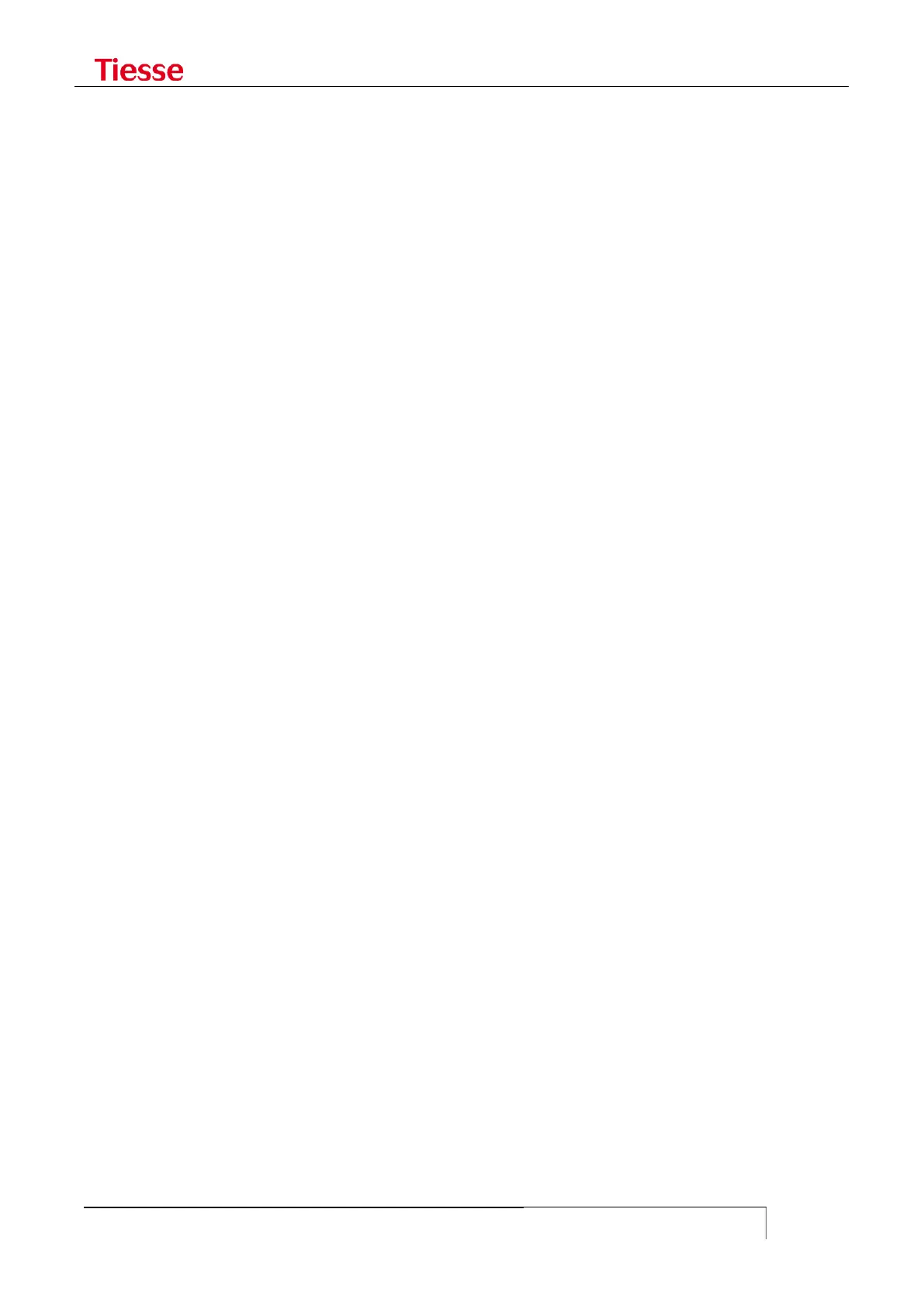set qos-ext filter-group <name> match prot <value>
In order to filter on protocol and source port the command is:
set qos-ext filter-group <name> match prot <value> src-port <value>
In order to filter on protocol and destination port the command is:
set qos-ext filter-group <name> match prot <value> dst-port <value>
In order to associate a filter group to a class the command is:
set qos-ext class <name> filter group <name>
It is possible to specify that all the non-filtered traffic is assigned to a class, specifying this class as
preselected class:
set qos-ext class <name> default
Lastly, it is possible to associate a priority to packets which flow through a class. The priority is
expressed with a positive integer; the lower the value, the higher the priority. All other classes have
a predefined value of 2.
set qos-ext class <name> filter priority <value>
TRAFFIC MARKING
It is possible to set a value of DSCP, of DSCP class or IP-Precedence on all the packets which flow for
a class.
In order to mark with a value of DSCP the command is:
set qos-ext class <name> filter set dscp <value>
In order to mark with a value of DSCP class the command is:
set qos-ext class <name> filter set dscp-class <value>
In order to mark with an IP-Precedence value the command is:
set qos-ext class <name> filter set ipp <value>
POLICING
It is possible to specify a maximum input bandwidth for a class:
set qos-ext class <name> filter police <rate>
Traffic which exceeds the bandwidth set is subjected to the specified action (only drop at present):
set qos-ext class <name> filter police exceed-action drop
PRIO QUEUE DISCIPLINE
If it is needed to assign different priorities to different types of traffic, without policing or shaping,
then it is possible to specify a prio queue discipline on the policy, as follows:
set qos-ext policy <name> qdisc prio
